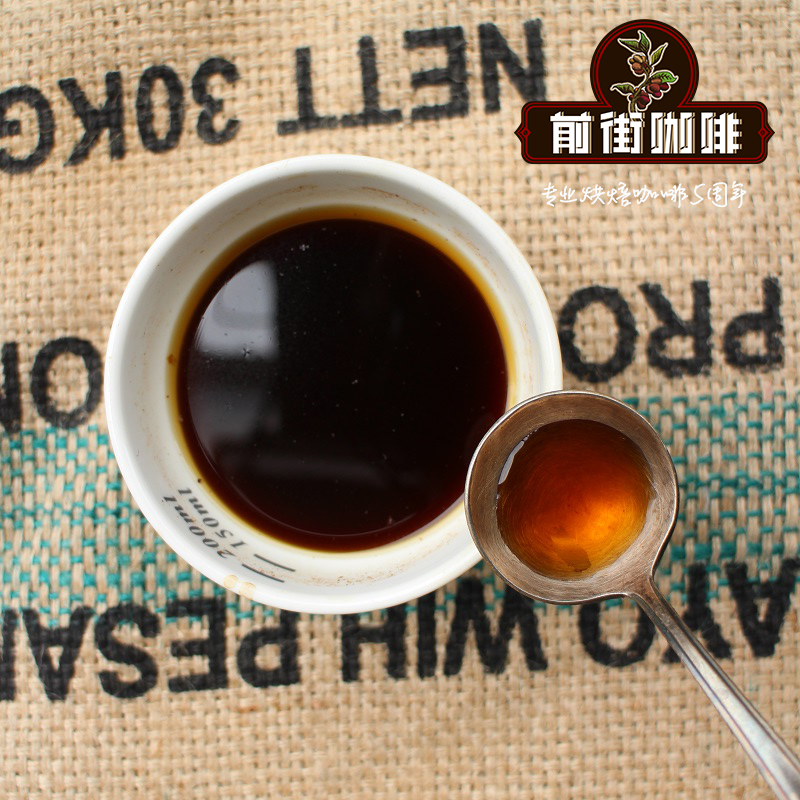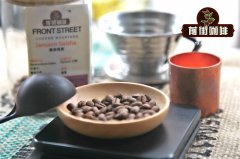Which Kenyan coffee bean brand is good for individual coffee and how many kinds of coffee are there?

Professional coffee knowledge exchange more coffee bean information please follow the coffee workshop (Wechat official account cafe_style)
Qianjie-knowledge sharing of Kenya Coffee and individual Coffee varieties
Kenya, as one of the top five coffee producers in the world, the coffee beans there are loved by the industry because of their unique geographical environment and unique fruit flavor. The most professional baristas will tell you that Kenyan coffee is the best coffee. The taste of Kenyan coffee is as intriguing as its natural scenery, with an irresistible aroma. The high altitude and low temperature in the mountains of Kenya prolong the ripening period of coffee beans and help to accumulate the complex aroma of the fruit. Its unrestrained acidity and heavy aromatic fruit flavors, such as blackcurrant and grapefruit, constitute the rough ripening characteristics of Kenyan coffee.
Small gifts of knowledge: in the 19th century, the Qing Dynasty was defeated in the first Anglo-French war. In 1858, the Qing government signed the Tianjin Treaty with Russia, the United States, Britain and France respectively. Anping Port in the south of Taiwan and freshwater port in the north were designated as the place to open the port. Deji, a British businessman, came to Taiwan to do business because of the opening of Hong Kong. Deji is part of the British East India Company (English East India Company), which played an important role as a coffee trader in the history of British coffee development in the 17th century.
Kenya is divided into AA,AB,C,E,PB,TT,T,ML,MH according to the size and shape of coffee beans. These grades mainly distinguish the shape and size of beans, but not absolutely represent the quality of beans. Many people believe that beans with larger grains contain more oils that produce the aroma of coffee, and because of this, beans with larger grains are more expensive in the market.
AA grade: the particle size (Screen Size) is between 17 and 18 mesh (7.20mm screen), the output is not much, this is the most popular grade in China's middle and high-end market.
AB grade: particle size (Screen Size) is between 15 and 16 mesh (6.8mm-6.2mm sieve), accounting for the majority of production, but also the most common raw bean grade
Kenya's coffee producing areas are most famous for their seven major producing areas, Thika, Kirinyaga, and the western side of Mount Kenya (Mt. Kenya West, Nyeri, Kiambu, Ruiri and Muranga. A washed Kenyan asali of Qianjie Coffee comes from Qianbu, with bright acidity, berry aroma and virgin fruit flavor.
There are more than 6000 species of coffee trees, most of which are tropical trees and shrubs. There are four main coffee trees in the world, of which only two are of real commercial value and are planted in large quantities, and the quality of the coffee beans produced by other coffee trees is also higher than that of other coffee trees.
The first is Arabica beans, the world-famous Blue Mountain Coffee, Mocha Coffee and so on, almost all of them are Arabica. The other is Robasta species, which originated in the Congo of Africa. Different varieties of coffee beans have different flavors, but even the same varieties of coffee trees have their own unique flavor due to the influence of different soil and climate.
Knowledge gift: Kenyan varieties were developed in 1930 at the local Scott Laboratory (Scott laboratories) in Kenya in order to improve the coffee industry, starting with local Kenyan varieties, hoping to cultivate varieties with high yield, resistance to diseases and insect pests, greater adaptability to weather changes, and adaptability to local soil characteristics, matched with traditional native Kenyan native bourbon, mocha, Tibica, etc. Cultivate a new SL28, SL34 these two future stars, the flavor has beyond the traditional bourbon fruit acid, citrus, black plum and other strong fruit flavor.
END
Important Notice :
前街咖啡 FrontStreet Coffee has moved to new addredd:
FrontStreet Coffee Address: 315,Donghua East Road,GuangZhou
Tel:020 38364473
- Prev

Brief introduction to the characteristics, flavor and taste of Taiwan coffee which is better, Italian coffee or hand-brewed coffee?
Professional coffee knowledge exchange more coffee bean information please follow the coffee workshop (Wechat official account cafe_style) front street-Taiwan Alishan coffee characteristics, Italian and individual coffee choice knowledge sharing Alishan coffee is the most special and superior coffee in Taiwan, and the output is low, the scarcity is precious. Alishan, located 75 kilometers east of Chiayi City, Taiwan, has a unique climate and
- Next

Brief introduction to the producing areas of Kenyan Coffee introduction to the flavor of Kenyan Nieri coffee
Professional coffee knowledge exchange more coffee bean information please follow the coffee workshop (Wechat official account cafe_style) front street-Kenya coffee producing area, Neri coffee flavor sharing Kenya coffee flavor rich: strong aroma, obvious acidity, especially Kenya coffee after the harvest, must be established by the government of Kenya Coffee Authority (Coffee Board of Kenya, CBK) system
Related
- Beginners will see the "Coffee pull flower" guide!
- What is the difference between ice blog purified milk and ordinary milk coffee?
- Why is the Philippines the largest producer of crops in Liberia?
- For coffee extraction, should the fine powder be retained?
- How does extracted espresso fill pressed powder? How much strength does it take to press the powder?
- How to make jasmine cold extract coffee? Is the jasmine + latte good?
- Will this little toy really make the coffee taste better? How does Lily Drip affect coffee extraction?
- Will the action of slapping the filter cup also affect coffee extraction?
- What's the difference between powder-to-water ratio and powder-to-liquid ratio?
- What is the Ethiopian local species? What does it have to do with Heirloom native species?

